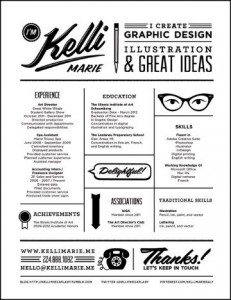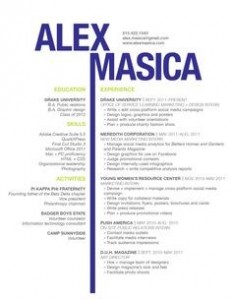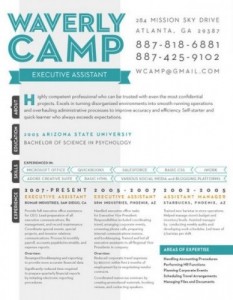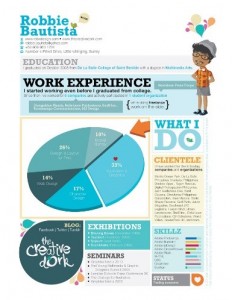Four Outdated Cover Letter Techniques
In today’s modern world where high speed energy and time productivity are viewed as the necessary driving forces to a nation’s thriving working class, it would seem as though cover letters are a thing of the past. After all, an employer’s time is important and limited due to numerous responsibilities and deadlines; thus, having to read cover letters on top of stacks of resumes is not considered the most productive way to narrow down the hiring search.
As a result, many corporate and staffing companies use an applicant tracking system (ATS) to help make recruiting more efficient (O’Brien et al.). The software system works by pulling specific information from a candidate’s resume to match a job’s description or requirements, such as Bachelor’s Degree in Communication or Microsoft Office, for example. Often times, cover letters are not used in this process or even read.
 However, there are still many hiring managers that expect a cover letter attached to a resume. And although several success experts advice other modern ways to land a job, such as networking, many agree that if given the choice to submit a cover letter with a resume, one should always provide both forms as it may make all the difference.
However, there are still many hiring managers that expect a cover letter attached to a resume. And although several success experts advice other modern ways to land a job, such as networking, many agree that if given the choice to submit a cover letter with a resume, one should always provide both forms as it may make all the difference.
Since there are mixed reviews on this topic, it is important to read job descriptions and requirements carefully when applying for a job. Also, identifying the formality of the work place might help to determine the appropriateness of a cover letter. For instance, a bank would be considered a formal place of employment when compared to a salon, who would most likely not require a cover letter when applying.
Although the option to submit a cover letter has not been ruled out, here are four traditional writing techniques that are considered outdated and should be avoided when drafting a cover letter:
#1- To Whom It May Concern
Why it no longer works:
This once formal greeting now appears generic and quite frankly, lazy. You should address your cover letter to the person who will be evaluating you for the position. Now a days, job postings almost always provide the contact information of the hiring manager, HR department, or the specific department in which the job falls under.
What to do instead:
In the case that the employer’s email is not provided, you can research the job title or department using LinkedIn, the company’s website, or an engine search. You can also call the company directly to ask to whom you should address the letter (Graves). “If nothing is available, which is highly unlikely, then – and only then – you can use a generic addressee, like ‘Hiring Manager’” (Morgan) or “Hiring Professional” (Graves).
#2- Using A Cut & Paste Introduction
Why it no longer works:
A cover letter template can be useful when used as a reference, but not when the only thing modified are the fill-in-the-blank information. One of the most commonly used sections in a free template is the introduction. It sounds something like this: “I am writing to express my interest in the (blank) position” or “Attached you will find my resume for your review.” Similar to the first no-no on the list, starting your cover letter with this generic introduction gives a passive and amateur first impression.
What to do instead:
Employers want to know quickly if you’re qualified for the position; therefore, start by identifying yourself and your passion for the industry by stating how long you’ve been a professional in your field, what specializations you practice, and what overall interests you possess that match the position. If you’re applying for an entry-level position, you should mention the education or training you’ve had to make you knowledgeable and successful in this occupation; as well as what drew you to the profession and perhaps how this position can allow you to accomplish future goals.
#3- Singing The Company Praises
Why it no longer works:
In the past, people were advised to start their cover letters with a praise to show knowledge of the company and its accomplishments. One way to do this was to share an informative company statistic. This writing technique called a hook is effective when writing persuasive essays, not cover letters, because you shouldn’t be trying to convince an employer to hire you; especially not by using insincere recognition.
What to do instead:
Having confidence in your professional abilities will be more impressive to an employer than your use of flattery. Instead of praising the company, simply compare common interests to draw a connection between the company’s achievements and your own professional goals or values. For instance, some companies put forth a lot of effort and training into building customer relationships, while others get involved in their community through fundraisers, donations, and outreach programs.
#4- Making Plans To Follow Up
Why it no longer works:
Many of us were taught to take the initiative by concluding your cover letter with your intentions of contacting the company a few days after submitting your resume. The problem with this strategy is that more often than not, an employer or hiring manager will not be available when you call. And if you choose to leave a message, instead of appearing highly interested in the position, you risk the chance of coming off as impatient or controlling.
What to do instead:
There are better ways to conclude your cover letter; one of which is to thank the employer for his or her time and consideration. You should also take this opportunity to reiterate the skills that make you a highly qualified candidate for the position you are applying for. A more effective way to show initiative is to share ways in which you plan to improve or excel the department or company if given the opportunity. Finally, provide your contact information and availability for a phone or office interview.
Sources:
Graves, Jada A. “The 7 Deadly Sins of Cover Letter Writing.” US News. 11 Oct. 2012. Web. 23 Sept. 2015.
Morgan, Hannah. What You Need to Know About Cover Letters. U.S News. 18 Mar. 2015. Web. 18 Sept. 2015.
O’Brien, Patrick and Davis-Ali, Susan. Do Cover Letters Still Matter? USA Today. 8 Nov. 2013. Web. 18 Sept. 2015.
What are some additional writing techniques you find outdated in a cover letter? Any do’s and don’ts you’d like to share?
* * *
Stay tuned for…
[Preparing References]











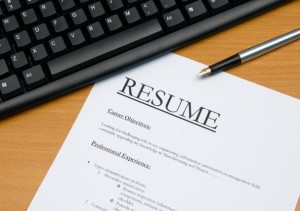 Writing a resume for the first time can be a daunting task. More often than not, young adults learn how to write a resume only after graduating from school and are consequently in need of employment. Luckily, there are many websites that provide free access to hundreds of resume templates, which can be both a good and bad thing. It certainly is helpful to have a polished outline guide you through the process as it displays your qualifications in a professional manner. However, deciding on what template works best for the position you’re applying for and one that helps distinguish you from the rest as a potential candidate can be quite the challenge. Here are a few tips to help you write the perfect resume for the job:
Writing a resume for the first time can be a daunting task. More often than not, young adults learn how to write a resume only after graduating from school and are consequently in need of employment. Luckily, there are many websites that provide free access to hundreds of resume templates, which can be both a good and bad thing. It certainly is helpful to have a polished outline guide you through the process as it displays your qualifications in a professional manner. However, deciding on what template works best for the position you’re applying for and one that helps distinguish you from the rest as a potential candidate can be quite the challenge. Here are a few tips to help you write the perfect resume for the job: